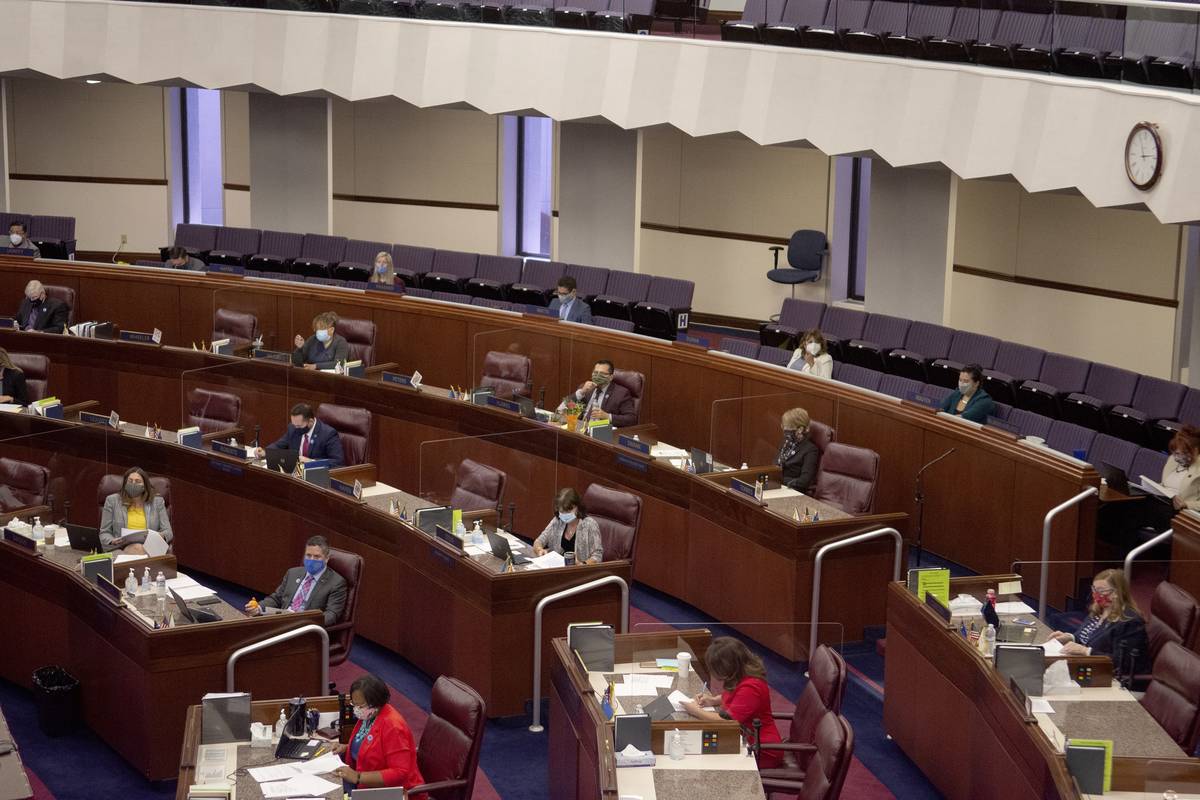State approves $29M in coronavirus relief funds

CARSON CITY — As Nevada inches further into the hoped-for recovery phase of the coronavirus pandemic, state lawmakers Friday approved $29 million in allocations from the state’s reservoir of federal pandemic aid, with $20 million earmarked to help small businesses throughout the state get back on their feet.
The Legislature’s Interim Finance Committee also approved $4.6 million to help promote tourism, an industry decimated by closures caused by the pandemic, and $1.8 million to help distribute a vaccine when it becomes available. The Centers for Disease Control and Prevention advised states this month that a vaccine could become available for widespread distribution in late October or early November, although that timeline is considered uncertain.
“It is better to be prepared no matter when the vaccines shows up. We just need to be ready for it,” said Assemblywoman Maggie Carlton, D-Las Vegas, the committee chair.
The funds allocated Friday are from the federal CARES Act and by law must be spent by the state this year. The $20 million small-business loan program is part of $70 million in CARES money available for economic development programs that support recovery from the pandemic.
Grants for recovery
The fund will provide grants of up to $20,000 to businesses, nonprofits, chambers of commerce, and arts and culture organizations. To be eligible, an applicant must demonstrate financial hardship from COVID-19, be located in Nevada, be in good standing with the state, have had an active business license as of March 1, employ fewer than 50 people, and gross less than $4 million annually. There is no employee limit for nonprofits, business chambers, and arts and culture organizations.
The Governor’s Office of Economic Development and the treasurer’s office will administer the money, and applications can be filed online when the program is up and running within three weeks. Virtually any business expense is eligible, including working capital, payroll, rent and utilities, inventory, personal protective equipment and cleaning supplies,.
“I don’t think it’s going to be very difficult for a lot of businesses to show a $10,000 loss,” said Sen. Pete Goicoechea, R-Eureka, as the committee prepared to approve the outlay. “Although it isn’t a lot of money, $10,000, that might be the difference in make or break in some of these small mom-and-pop businesses.”
The $4.6 million to the Division of Tourism will help recoup the loss of its main funding source, a fractional share it receives of the state lodging tax, which nosedived this year amid business closures and the drop-off in tourism.
One outlay is $1.65 million to boost destination tourism to rural communities, on the assumption that visitors will be looking to stay away from crowds and visit Nevada’s open spaces. Another $1.5 million will go to promote in-state travel for residents, promoting staycations and less distant, less costly excursions by road trip.
Other CARES Act outlays
* Just over $1 million for a package of economic development studies focused in part on implementing existing but as yet unrealized solutions, within the context of how the pandemic made conditions worse. The studies include broadband, telecommunications and e-commerce expansion to respond to the public health, distance learning, and economic pressures; supply chain and last-mile delivery enhancements; assessing behavioral health care delivery to ensure capacity in response to COVID-19; retraining displaced workers, strengthening state systems and processes to respond to the health emergency, and an overall plan knitting them all together.
* $1.2 million to study and identify the post-pandemic employment needs of state businesses and workers and develop an online platform to help job seekers inventory their skills and match them to existing jobs or opportunities to learn new skills.
* $311,000 to repay an outside health care management company that took over operation of the Reno Valley Retirement Center, whose license was suspended in August because of coronavirus-related health violations that endangered residents.
* $52,000 to the secretary of state’s office to pay for five temporary workers to address backlogs arising from the COVID-19 pandemic. Two of the positions are for the elections division, which has seen new election procedures put in place for the November election drive public inquiries from 50 per day to more than 1,000, Mark Wlaschin, deputy secretary of state for operations, told the panel.
Contact Capital Bureau reporter Bill Dentzer at bdentzer@reviewjournal.com. Follow @DentzerNews on Twitter.